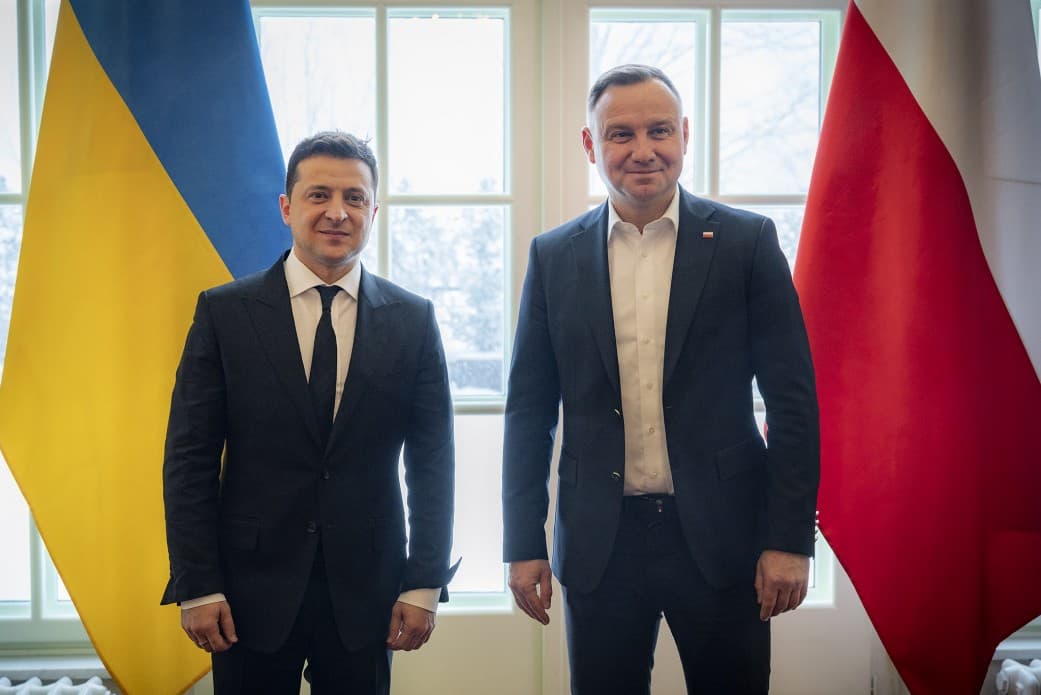Poland pledges support to Ukraine in face of Russian threat

President Volodymyr Zelensky concluded a two-day visit to Poland, where he met with Polish President Andrzej Duda on Jan. 20.
After being brought up to date on Russia's looming threat of invasion, Duda pledged to stand with Ukraine.
"In the face of the (Russian) threat, Ukraine can count on Poland's support," said Duda's press secretary Jakub Komuch. "Ukraine's security is part of our own security."
The presidents warned Russia that aggression against Ukraine will be extremely costly, in terms of sanctions and troop casualties, in the event of an invasion.
According to Komuch, the Nord Stream 2 pipeline was discussed as having a significant impact on Europe's energy security and the project that has "no serious defenders" in Ukraine or Poland.
Nord Stream 2 is an undersea gas pipeline from Russia to Germany allowing Russia to bypass Ukraine. If it’s allowed to operate, Ukraine can lose up to $2 billion in transit fees per year, as well as an important bargaining chip to hold back Russia’s aggression.
Zelensky said that during his visit, the two leaders discussed "security challenges, removal of obstacles in the transport sphere, strengthening of energy cooperation."
Ukraine and Poland have had a complicated relationship that dates back to the early 20th century. In the final years of World War II, the Ukrainian Insurgent Army (UPA) killed from 36,000 to 100,000 Poles, according to different estimates, in the historic region of Volhynia, most of which is now within western Ukraine.
While the Polish government and individual Ukrainian historians have called it a genocide, many in Ukraine have played down the killings, stating that both sides committed atrocities during the war. Several thousands of Ukrainians were also killed during the conflict.
The major cyberattack on Ukraine on Jan. 13, which was most likely perpetrated by Russia, came with a message in Ukrainian, Russian and Polish, claiming to be revenge for the UPA and "historical lands" including Volhynia.
Polish Foreign Ministry’s spokesman Łukasz Jasina called the cyberattack statement "a repeated attempt to destabilize Ukrainian-Polish relations."
Despite the historic disputes, lately Poland has been a strong supporter of Ukraine, as well as one of its largest trade partners and a provider of military assistance.










